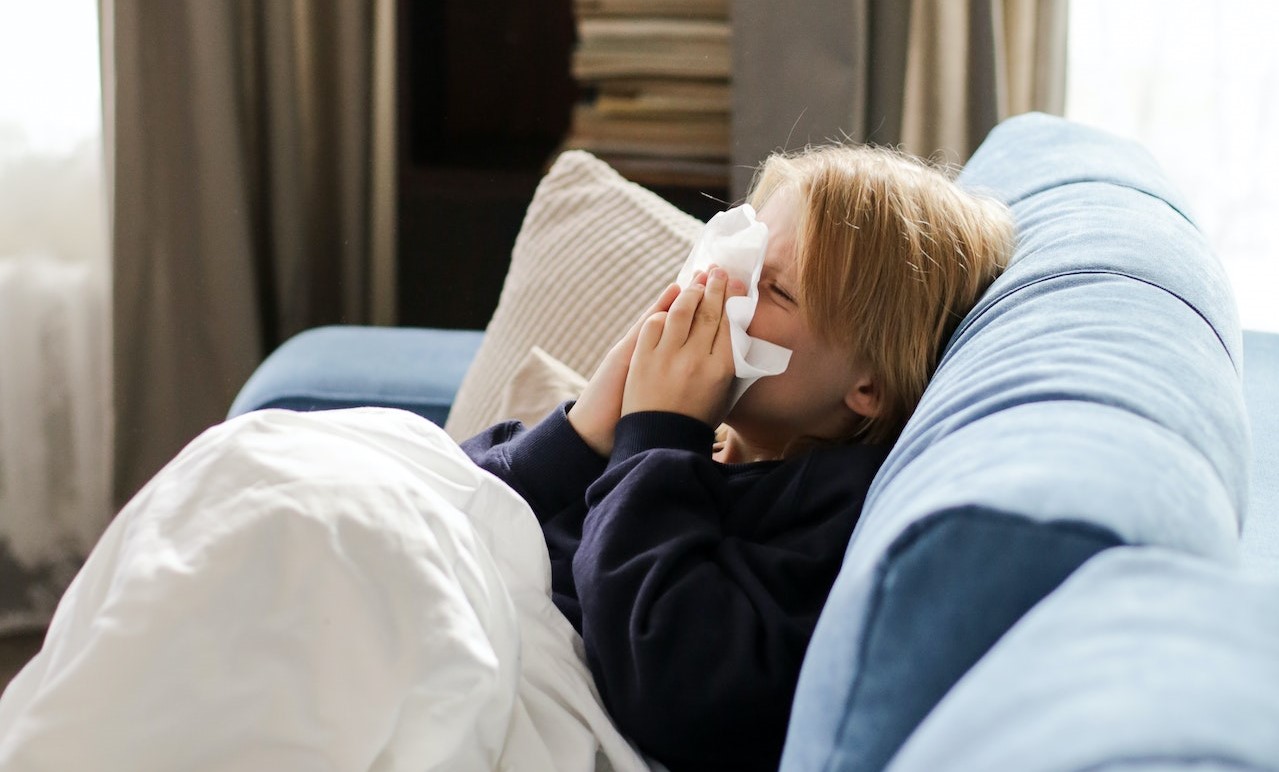8 Most Common Illnesses in Children
Know How Best to Take Care of Your Sick Kids
As a parent, you naturally worry whenever you see your little one fall ill. From sniffles and coughs that never seem to go away to mysterious bumps and bruises that appear overnight, various illnesses can affect children and make them feel miserable.
It can be difficult for moms and dads everywhere to stay on top of the various illnesses that can afflict their kids.
Whether your child is dealing with chickenpox or pink eye or any other health issue, it’s important to know what ailment they’re suffering from and how best to take care of them. Understanding the most common illnesses in children can make it easier for you to get them treated quickly while minimizing discomfort as much as possible.
To help you out, Kids Car Donations has compiled the various common illnesses that afflict youngsters, along with their symptoms and treatment options.
- Sore throat
Sore throats, particularly those that are caused by a virus, are extremely common in toddlers. They don’t usually require any medication, as they tend to subside in seven to 10 days.
If your child complains that they’re finding it hard or painful to swallow or talk, or you noticed their voice getting hoarse, there’s a good chance they have a sore throat.
Be sure to keep an eye on other signs to confirm your suspicions, including redness in the back of their mouth, bad breath, mild cough, runny nose, swollen neck or jaw glands, or white patches on their tonsils.
Have your child do the following to alleviate the condition:
- Drink plenty of cool or warm fluids (avoid very hot drinks).
- Gargle warm, salty water.
- Suck hard sweets, ice cubes, or lozenges.
- Eat cool, soft foods.
- Common cold
Almost all of us have had the cold several times while we were little kids. Fast forward to the present, it’s still notorious for attacking children, especially during the winter months. The illness usually resolves within a week, but can sometimes last longer.
The symptoms are similar to those of other respiratory illnesses, such as a runny or stuffy nose, coughing, sneezing, sore throat, low-grade fever, and mild body aches and pains.
Have your child do the following to alleviate the condition:
- Get plenty of rest.
- Drink plenty of fluids.
- Suck on menthol sweets.
- Gargle warm, salty water.
- Use decongestant sprays or tablets to relieve a blocked nose.
- Take over-the-counter painkillers such as ibuprofen or paracetamol to reduce any fever or discomfort (We recommend you consult with the pharmacist first).
- Bronchitis
If your child tells you that they hear a high-pitched whistling sound whenever they exhale and that they’ve been breathing rapidly lately, then they most likely have bronchitis. The condition is typically caused by a virus, which can spread in the nose, throat, and mouth.
Aside from wheezing and irregular breathing, children with bronchitis may experience a persistent cough (often accompanied by mucus or phlegm), chest pain or discomfort, fatigue, and fever. In some cases, they might also produce green or yellow sputum, a thick substance that accumulates as a result of bacteria in the lungs or bronchi.
Have your child do the following to alleviate the condition:
- Get enough rest (if possible, allow them to skip school or daycare).
- Drink plenty of fluids like water, diluted fruit juices, and clear soups.
- Breathe in steam for up to 10 minutes.
- Use a humidifier in their bedroom.
- Take OTC medications that can help relieve bronchitis symptoms such as coughing, sore throat, and fever.
- Hand, foot, and mouth disease (HFMD)
HFMD is a contagious viral infection that commonly hits children below five years old. Those afflicted with it usually experience mild symptoms for seven to 10 days. Symptoms typically include fever, sore throat, and blisters or sores inside or around the mouth, hands, and feet.
Have your child do the following to alleviate the condition:
- Eat cold or soft foods like ice cream, pudding, chilled soups, and smoothies.
- Get plenty of rest.
- Stay hydrated.
- Take over-the-counter pain medications such as ibuprofen or acetaminophen (never give aspirin).
- Also, make sure to keep everyone in the household safe by disinfecting all toys and objects that your child has touched.
- Bacterial sinusitis
Bacterial sinusitis and the cold share similar symptoms, such as coughing, sneezing, runny nose, congestion, and headache. Both are caused by viral or bacterial infections in the nose and sinuses. Both are very common in children.
Two main things that set them apart would be the duration and severity of the symptoms. Common colds usually last from one to two weeks, while bacterial sinusitis may last for up to four weeks or longer, making it more serious than the cold.
Have your child do the following to alleviate the condition:
- Use saline sprays.
- Use a humidifier in dry indoor places.
- Drink plenty of fluids.
- Wash hands properly and frequently.
- Stay away from allergens.
- Take antihistamines.
If the sinusitis is characterized by fever and thick yellow nasal discharge for at least three or four consecutive days, consult your pediatrician. They may prescribe antibiotics for your child.
- Urinary tract infection (UTI)
UTI is common not only in children but also among teens and adults. The infection is caused by a bacteria buildup in the urinary tract. Its symptoms include a burning sensation when urinating, frequent urge to urinate despite an empty bladder, strong smelling or cloudy urine, unusual back or side pain, and bedwetting.
Have your child do the following to alleviate the condition:
- Increase fluid intake.
- Urinate when needed.
- Empty bladder completely.
- Practice good hygiene habits.
- Wear loose-fitting clothes.
If the condition persists, seek medical advice for proper diagnosis and treatment.
- Croup
This is an infection of the upper airway caused by a virus. Croup commonly affects children between 6 months and 6 years of age. Its symptoms include a barking cough, hoarseness, difficulty breathing, and a high-pitched squeak when inhaling. Croup usually resolves on its own in a few days. However, some cases can be serious and may require hospitalization for treatment.
Have your child do the following to alleviate the condition:
- Run a cool mist humidifier in their bedroom.
- Apply a warm compress on their chest or back for 10-15 minutes several times a day.
- Take slow, deep breaths when they cough.
- Drink plenty of fluids.
- Stomach flu (gastroenteritis)
Vomiting, diarrhea, and abdominal pain are telltale signs that your child is suffering from the stomach flu. Known as gastroenteritis, it is an infection of the digestive system caused by viruses or bacteria. Other symptoms may include fever, nausea, headache, and even dehydration.
Gastroenteritis in children is usually mild and resolves within a few days. However, if you’re not seeing any progress with your child, seek medical advice for proper diagnosis and treatment.
Have your child do the following to alleviate the condition:
- Take frequent, small sips of clear fluids (except milk or anything that contains milk).
- Only eat light foods — such as boiled potatoes, crackers, toast, and bananas — until they get better.
- Avoid strenuous activities that could further upset their stomach.
Here’s How You Can Help Critically Ill Kids in Your Area
On any given day, countless children are taken to hospitals for treatment. Unfortunately, not all of those who are suffering from serious conditions are able to receive quality medical care. Many fail to get proper treatment because their families could not afford the high cost of treatment and hospitalization.
That’s why we at Kids Car Donations are here. We serve as the online vehicle donation platform for charities devoted to providing critical assistance to destitute boys and girls who have been diagnosed with serious medical conditions.
You can extend them a helping hand by simply donating to us any vehicle you no longer use. We’ll auction off your donated car and hand over the proceeds to children’s nonprofit organizations that we are in partnership with. These reputable IRS-certified 501(c)(3) nonprofits use the funding we give them to provide their young beneficiaries with free and easy access to a wide range of pediatric health services, emotional support, and other essential health care services.
In exchange for your donation, we’ll provide you with our free professional towing service anywhere in the country. Your gift will also entitle you to claim the maximum tax deduction in the next tax season.
However, the best part about making a charitable contribution to us is the priceless joy of knowing that you’ll be making a difference in the lives of children and teens in your area who have been stricken with serious illnesses and disabilities.
We’re willing to accept nearly all types of vehicles whatever their ages or conditions.
If you want to know more about Kids Car Donations, including our quick and easy vehicle donation process, head over to our FAQs page. If you have questions or concerns, feel free to call us anytime through our toll-free hotline at 866-634-8395 or write to us here.

Ready to Save Young Lives?
You can turn your battered commuter car into a powerful tool that can help restore the health of the suffering kids in your community. That’s what will happen when you donate that vehicle to Kids Car Donations. Call us at 866-634-8395 or fill out our secure online donation form now!


